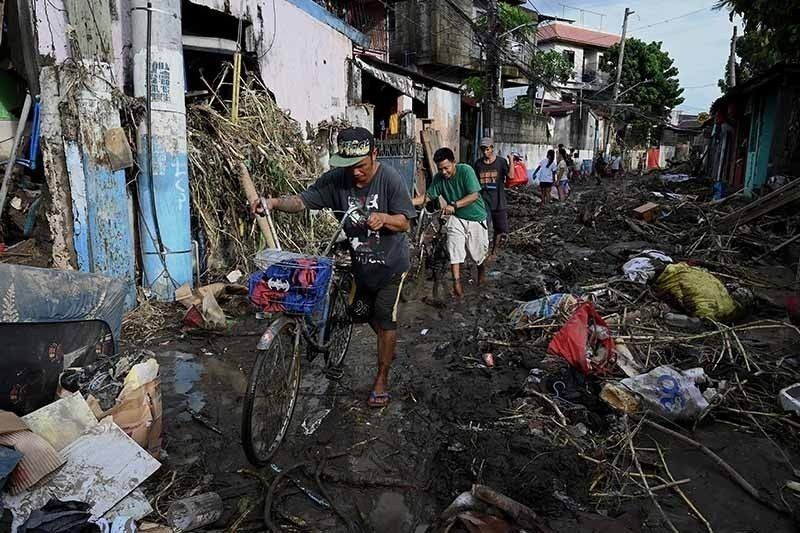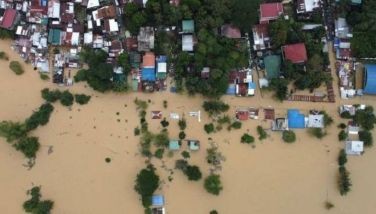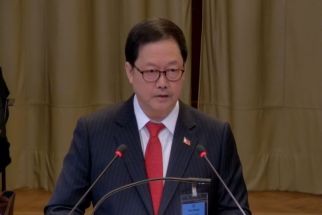9 in 10 Filipinos felt climate impacts in past three years — SWS

MANILA, Philippines (Updated 3:53 p.m.) — Nine in 10 Filipinos have experienced the impacts of climate change, which are expected to worsen due to continued increase in greenhouse gas emissions, according to a Social Weather Stations survey.
Ninety-three percent of adult Filipinos surveyed by the SWS in December last year said they have personally experienced the impacts of climate change in the past three years.
Of those, 17% of Filipinos have experienced severe climate impacts, while 52% experienced moderate effects. Twenty four percent felt little impacts, while 6% said they did not experience any effects of the climate crisis.
The proportion of those who reported personally experiencing climate change rose by six percentage points from March 2017 and eight points from March 2013, the polling firm noted.
The SWS added that 81% of 1,200 adult respondents were previously aware of climate change, while 19% knew of the crisis at the time of the interview.
The Philippines is one of the countries most at risk from the impacts of climate change such as strong cyclones, droughts and sea level rise, with poor and rural communities bearing the brunt of disasters.
Global temperatures are now 1.1°C above pre-industrial levels, no thanks to more than a century of burning fossil fuels as well as unsustainable energy and land use.
The heating of the planet has resulted in more frequent and more intense extreme weather events. In its synthesis report released this week, the United Nations-backed Intergovernmental Panel on Climate Change warned that every increment of warming will result in more intense heat waves, heavier rainfall and other weather extremes that further increase risks for human health and ecosystems.
Climate action
The SWS survey also found that 88% of the respondents agreed with the statement: “People like me can do something to reduce climate risks.” Only 10% were undecided, and 3% disagreed with the statement.
This yielded a net agreement score of +85 (very strong), which the SWS said “indicates a very strong personal efficacy to do something to reduce climate risk.”
Seventy-six percent of Filipinos think that humanity could do something to stop or slow down climate change if everyone really tried. Twenty-three percent think that the climate crisis is beyond human’s control.
Nine in 10 Filipinos are aware of solutions to combat climate change such as planting trees in the right places and protecting forests, saving electricity at home, walking, cycling or taking public transportation, and reducing, reusing and recycling plastic waste. Eighty-six percent are aware that reducing food waste is a climate solution.
Majorities of those who are aware of such solutions said their families are already doing those:
- 95% for saving electricity at home
- 81% for walking, cycling or taking public transportation
- 91% for reducing, reusing, repairing and recycling
- 86% for throwing away less food
"The good news is our high awareness about this climate crisis, and the conviction that humanity can do something to prevent its worst impacts. Filipinos still have hope, and that's a good thing, because it means that we will be motivated to ensure we get solutions to the crisis through," Greenpeace Philippines director Lea Guerrero told Philstar.com
While individual lifestyle changes are worthwhile actions, changes in energy, food, industrial, urban and societal systems across the world are needed to avert the catastrophic impacts of climate change.
"Rapid and far-reaching transitions across all sectors and systems are necessary to achieve deep and sustained emissions reductions and secure a liveable and sustainable future for all," the IPCC said.
Guerrero also stressed the need for carbon majors such as Shell, Chevron, ExxonMobil, Tottal, BP to pay communities for reparations for climate losses and damages.
"We need to hold these companies accountable so that they change their business model which is wrecking the climate, and they compensate communities for the harms from climate impacts that their business models have created," she said.
Green groups said the report made it clear that governments should kick their fossil fuel habit as soon as possible and shift to renewable energy systems to keep global temperatures to within relatively safe limits.
The survey was conducted through face-to-face interviews of 1,200 adults. The sampling error margins are ±2.8% for national percentages, ±5.7% each for Metro Manila, Balance Luzon, the Visayas, and Mindanao.
- Latest





























